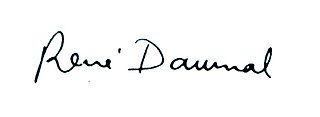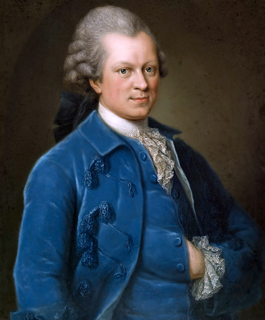A Quote by John Locke
It is one thing to show a man that he is in an error, and another to put him in possession of the truth.
Related Quotes
Man is made of opinions,—of truth and error; and his life is a warfare like all other lives before him.... Man goes on developing error upon error till he is buried in his own belief.... It is the office of wisdom to explain the phenomena in man called disease, to show how it is made, and how it can be unmade. This is as much a science as it is to know how to decompose a piece of metal.
The main thing is to have a soul that loves the truth and harbours it where he finds it. And another thing: truth requires constant repetition, because error is being preached about us all the time, and not only by isolated individuals but by the masses. In the newspapers and encyclopedias, in schools and universities, everywhere error rides high and basks in the consciousness of having the majority on its side.
The world always makes the assumption that the exposure of an error is identical with the discovery of truth - that error and truth are simply opposite. They are nothing of the sort. What the world turns to, when it has been cured of one error, is usually simply another error, and maybe one worse than the first one.
When we do not know the truth of a thing, it is good that there should exist a common error which determines the mind of man, as, for example, the moon, to which is attributed the change of seasons, the progress of diseases, etc. For the chief malady of man is a restless curiosity about things which he cannot understand; and it is not so bad for him to be in error as to be curious to no purpose.
Error is a supposition that pleasure and pain, that intelligence, substance, life, are existent in matter. Error is neither Mind nor one of Mind's faculties. Error is the contradiction of Truth. Error is a belief without understanding. Error is unreal because untrue. It is that which stemma to be and is not. If error were true, its truth would be error, and we should have a self-evident absurdity -namely, erroneous truth. Thus we should continue to lose the standard of Truth.
It is too often believed that a person in his progress towards perfection passes from error to truth; that when he passes on from one thought to another, he must necessarily reject the first. But no error can lead to truth. The soul passing through its different stages goes from truth to truth, and each stage is true; it goes from lower truth to higher truth.
Toleration, holding that every other man has the same right to his opinion and faith that we have to ours; and liberality, holding that as no human being can with certainty say, in the clash and conflict of hostile faiths and creeds, what is truth, or that he is surely in possession of it, so everyone should feel that it is quite possible that another equally honest and sincere with himself, and yet holding the contrary opinion, may himself be in possession of the truth.
The true value of man is not determined by his possession, supposed or real, of Truth, but rather by his sincere exertion to get to the Truth. It is not possession of Truth by which he extends his powers and in which his ever-growing perfectability is to be found. Possession makes one passive, indolent and proud. If God were to hold all Truth concealed in his right hand, and in his left only the steady and diligent drive for Truth, albeit with the proviso that I would always and forever err in the process, and to offer me the choice, I would with all humility take the left hand.
A guide, on finding a man who has lost his way, brings him back to the right path—he does not mock and jeer at him and then take himself off. You also must show the unlearned man the truth, and you will see that he will follow. But so long as you do not show it him, you should not mock, but rather feel your own incapacity.
There is no such thing as absolute truth and absolute falsehood. The scientific mind should never recognise the perfect truth or the perfect falsehood of any supposed theory or observation. It should carefully weigh the chances of truth and error and grade each in its proper position along the line joining absolute truth and absolute error.






































